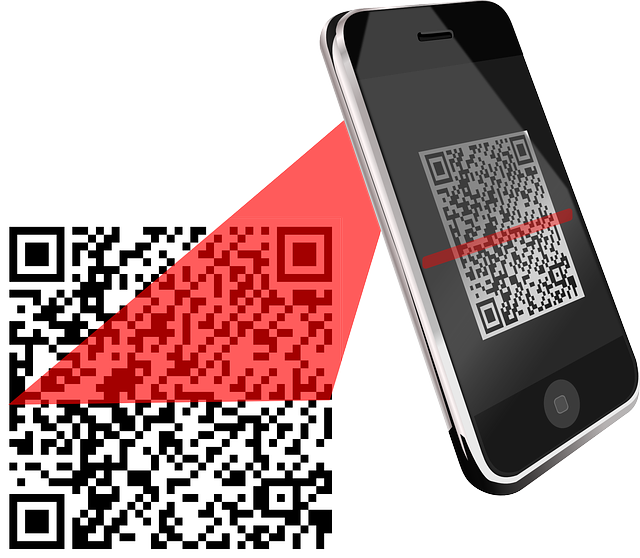The United Kingdom's stringent corporate governance framework is encapsulated within the UK Code of Conduct and Ethics, which mandates high standards for directors and employees, emphasizing integrity, objectivity, accountability, openness, honesty, and fairness. This code underpins ethical decision-making within organizations and promotes transparency to build trust among stakeholders. When international operations are involved, professional UK Code of Conduct and Ethics translation services become essential to convey these principles accurately in multiple languages, ensuring global ethical compliance and enhancing a company's reputation. These specialized translation experts navigate the complexities of ethical standards across linguistic barriers, adapting the code to maintain its intent and relevance in diverse cultural contexts while complying with local legal requirements. Effective translation is vital for multinational corporations with ethnically diverse workforces, as it ensures that ethical standards are universally comprehended and followed, facilitating a harmonious global business environment. Case studies demonstrate the successful adaptation of these codes in Germany and China, highlighting the importance of culturally sensitive translations in upholding ethical business practices worldwide.
Navigating the complexities of global business operations necessitates clear, consistent communication across diverse teams. A pivotal aspect of this is translating corporate codes of ethics to ensure all employees, regardless of location, understand the company’s ethical standards. This article explores the UK Code of Conduct and Ethics as a benchmark, delving into why its translation for global teams is indispensable. We will outline essential steps for effective translation, address common challenges, and share best practices. Furthermore, we present case studies highlighting successful translations that have facilitated seamless integration of ethical standards across multinational corporations. Engaging with UK Code of Conduct and Ethics translation services can significantly enhance organizational integrity and foster a culture of compliance worldwide.
- Overview of the UK Code of Conduct and Ethics
- The Importance of Translating Corporate Codes for Global Teams
- Steps to Effectively Translate the UK Code of Conduct and Ethics
- Challenges and Best Practices in Translating Ethical Documents
- Case Studies: Successful Implementations of Translated Codes of Conduct
Overview of the UK Code of Conduct and Ethics

Companies in the United Kingdom are expected to uphold a high standard of corporate governance, which is facilitated by the UK Code of Conduct and Ethics. This code serves as a comprehensive guide for directors and employees alike, ensuring that business practices align with legal requirements and moral principles. It encompasses key areas such as integrity, objectivity, accountability, openness, honesty, and fairness, providing a robust framework for ethical decision-making. The code is designed to promote transparency and responsibility across all levels of an organisation, fostering trust among stakeholders including customers, suppliers, investors, and the wider community.
To effectively communicate these principles to a diverse workforce or international partners, the UK Code of Conduct and Ethics often requires translation into multiple languages. Professional translation services specialising in corporate governance documents play a pivotal role in this process, ensuring that the nuances and complexities of ethical standards are accurately conveyed. By leveraging the expertise of these translation professionals, companies can bridge cultural and linguistic barriers, thereby enhancing global communication and adherence to ethical practices across their operations. This not only strengthens the company’s international standing but also ensures compliance with local regulations and societal expectations in different regions.
The Importance of Translating Corporate Codes for Global Teams

In an era where businesses operate on a global scale, effective communication is paramount. Translating corporate codes of ethics, such as the UK Code of Conduct and Ethics, into multiple languages for global teams is a critical step in ensuring that ethical standards are universally understood and adhered to. This translation process not only facilitates compliance across different regions but also reinforces the company’s commitment to integrity and transparency. By providing clear, accurate translations, employees from diverse linguistic backgrounds can engage with the corporate ethos, fostering a culture of ethical conduct that transcends language barriers. This is particularly important for multinational corporations with a workforce spread across various countries, where the nuances of local languages and cultural contexts must be navigated to maintain consistency in ethical practices. Utilizing specialized translation services, such as those offering UK Code of Conduct and Ethics translation, ensures that the original intent and meaning are preserved, which is essential for effective global communication and adherence to international legal standards. In doing so, companies can mitigate misunderstandings and enforce a uniform ethical framework that guides decision-making and behavior across all operations, thereby upholding corporate values and promoting a harmonious work environment.
Steps to Effectively Translate the UK Code of Conduct and Ethics

To effectively translate the UK Code of Conduct and Ethics, a meticulous and strategic approach is paramount. The first step involves selecting translation services with expertise in legal and ethical documentation. These professionals should not only be proficient in the target language but also well-versed in the nuances of corporate governance and ethics. This ensures that the translated content accurately reflects the original intent and compliance requirements of the UK Code. Upon selecting the appropriate service providers, a thorough review of the source document is conducted to identify any culturally specific references or idiosyncratic expressions that may not have direct equivalents in the target language. This step is crucial to preserve the integrity and effectiveness of the code’s guidelines across different linguistic and cultural contexts.
Once the translation process commences, it is imperative to maintain a clear line of communication between the translators, legal experts, and subject matter experts. Collaboration ensures that each term and concept within the UK Code of Conduct and Ethics is rendered accurately and appropriately in the target language. After the initial draft is completed, a comparison against the original text is essential to verify the translation’s fidelity to the source material. Subsequent revisions may be necessary to address any discrepancies or issues that arise during this quality control phase. Lastly, the translated code should undergo a review by legal professionals within the target jurisdiction to ensure its compliance with local laws and ethical standards. This comprehensive approach to translation services ensures that the UK Code of Conduct and Ethics is effectively communicated across different languages and cultural borders, thereby upholding its values and principles in a global context.
Challenges and Best Practices in Translating Ethical Documents

Translating ethical documents, such as the UK Code of Conduct and Ethics, presents unique challenges that require a nuanced approach. The intricate nature of ethical principles often involves abstract concepts that do not always translate directly between languages. Ensuring that the core values and precepts are accurately conveyed while maintaining the original tone and intent is paramount. Language service providers specializing in this field must be adept at capturing subtle nuances and cultural connotations, as ethical documents often guide company behavior that can vary significantly across different societies. This necessitates a deep understanding of both the source and target languages, as well as the cultural contexts in which they are used.
To address these challenges effectively, it is advisable to engage with professional UK Code of Conduct and Ethics translation services that employ native speakers and subject matter experts. These professionals bring a wealth of knowledge and experience, enabling them to perform accurate translations that resonate with the intended audience. Best practices in this area include a thorough initial analysis to understand the context and scope of the document, followed by a translation process that involves multiple stages of review and validation. Utilizing such services not only facilitates clear and consistent communication across different linguistic groups but also helps organizations uphold their ethical standards globally, thereby enhancing their reputation and compliance with international regulations.
Case Studies: Successful Implementations of Translated Codes of Conduct

Companies operating internationally must navigate the complexities of communication across diverse cultures and languages. A pivotal aspect of this is ensuring that corporate codes of conduct are effectively translated to resonate with employees from different linguistic backgrounds. One exemplary case study is a multinational corporation in the UK that leveraged specialized translation services, such as those offering the UK Code of Conduct and Ethics translation, to adapt its ethical framework for its German subsidiary. This strategic move facilitated a seamless integration of the company’s values into the local workforce, promoting consistency in ethical standards across borders. The translated code was met with positive reception, as employees appreciated the effort to convey corporate ethics in their native language. This not only improved internal communication but also played a crucial role in aligning global teams with the company’s overarching principles, leading to enhanced trust and credibility among stakeholders.
Another instance of successful implementation of translated codes of conduct is observed in a European electronics firm that expanded its operations into Asia. Recognizing the importance of cultural sensitivity and linguistic accuracy, the company employed expert translation services specializing in the UK Code of Conduct and Ethics translation to adapt their guidelines for the Chinese market. The result was a code of ethics that maintained the integrity of the original document while taking into account local cultural nuances and legal requirements. This approach fostered an environment of ethical clarity and compliance, which was instrumental in mitigating risks associated with cross-cultural misunderstandings and in reinforcing the company’s commitment to ethical business practices on a global scale. Both cases underscore the significance of culturally adapted translations of corporate codes of conduct for fostering an ethical workplace across different regions.
In concluding this discussion on enhancing communication within global teams, the necessity for translating the UK Code of Conduct and Ethics becomes evident. By leveraging specialized translation services, companies can effectively communicate their ethical standards across diverse linguistic and cultural boundaries. This ensures that all employees, regardless of location, understand the company’s values and compliance expectations. The article has outlined the critical steps to take when translating corporate codes, addressed the challenges inherent in this process, and highlighted successful case studies that demonstrate the benefits of such translations. As businesses continue to expand their reach globally, the role of translation services in bridging cultural divides and promoting ethical standards cannot be overstated. It is through these efforts that organizations can foster a unified corporate culture, upholding integrity and trust across all operations.



